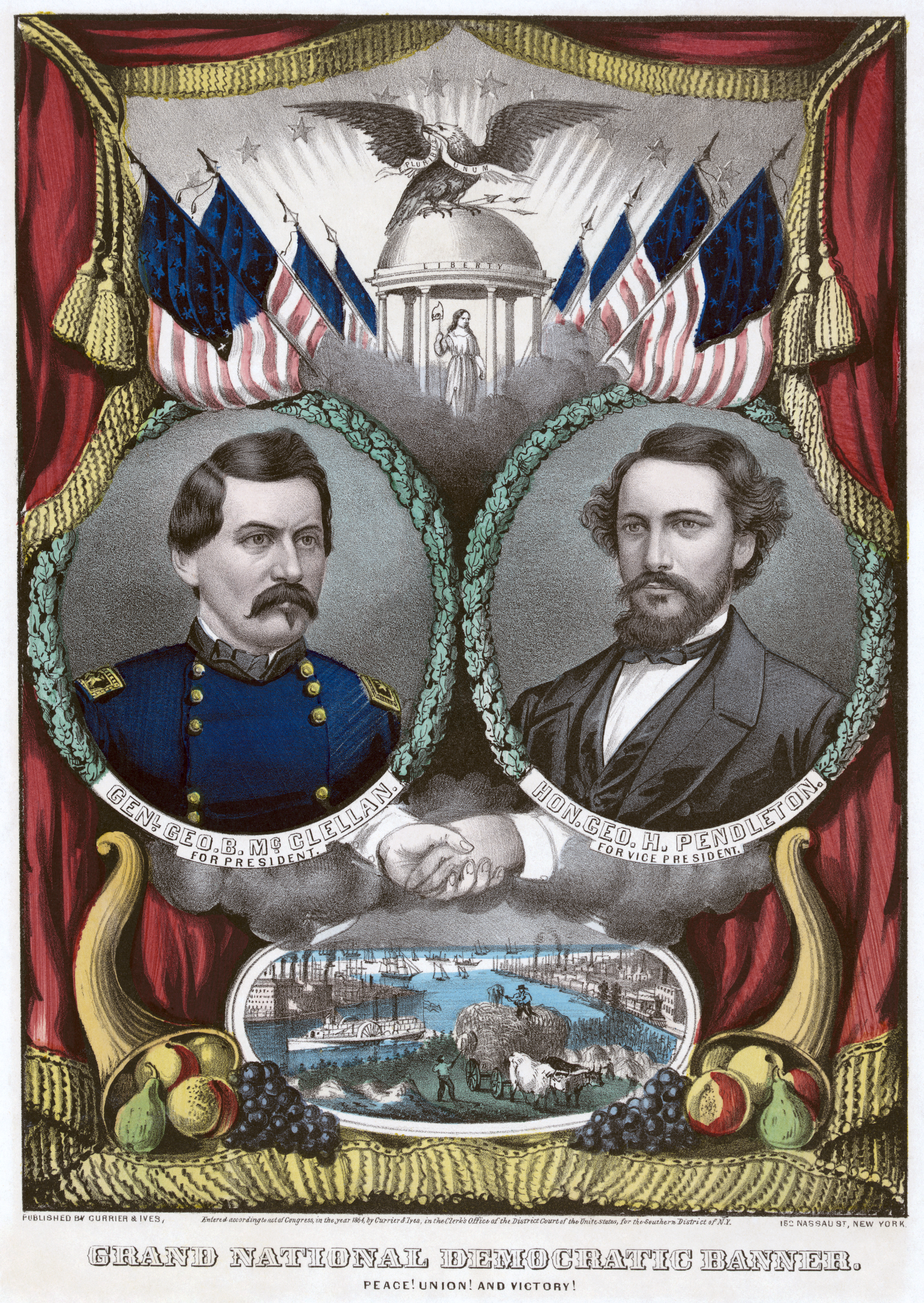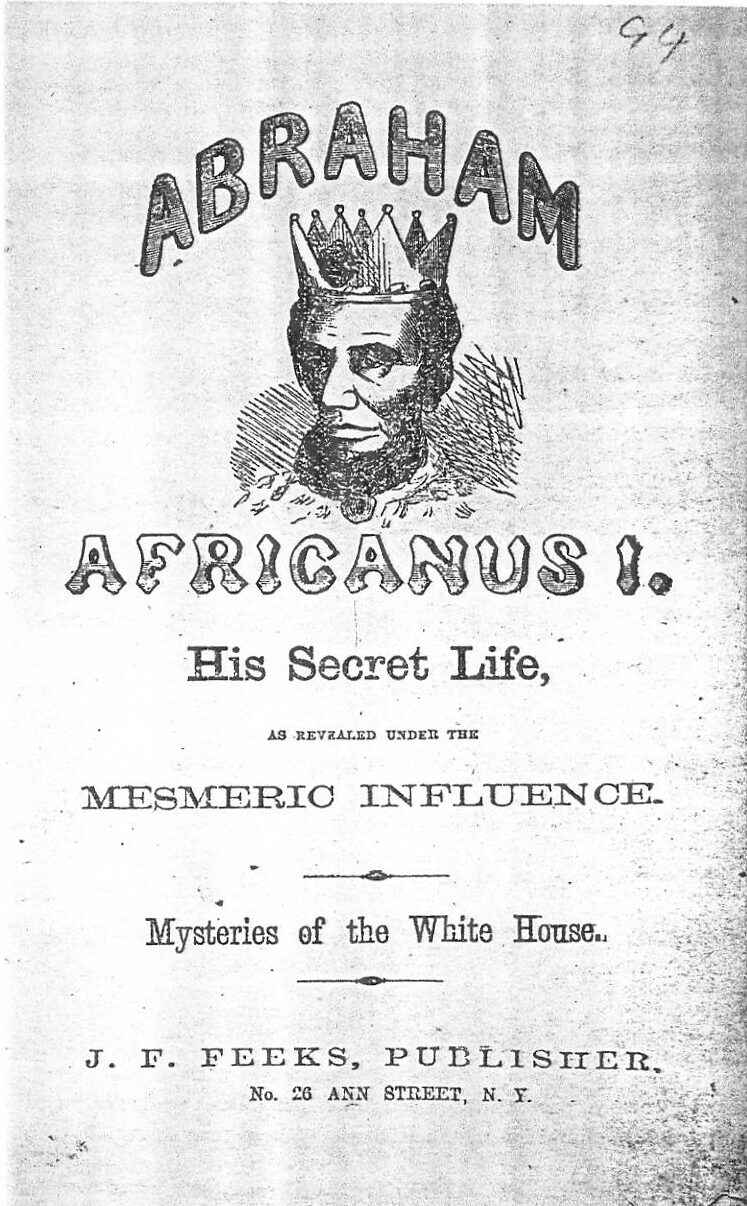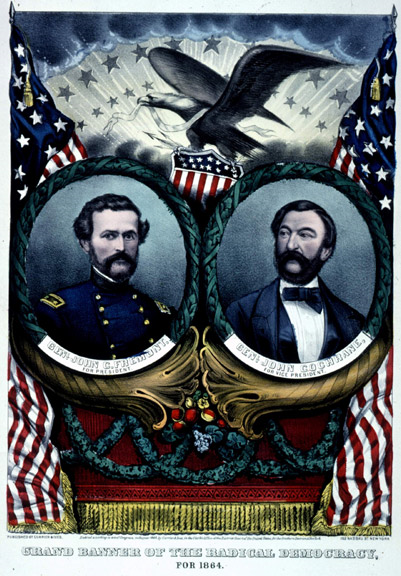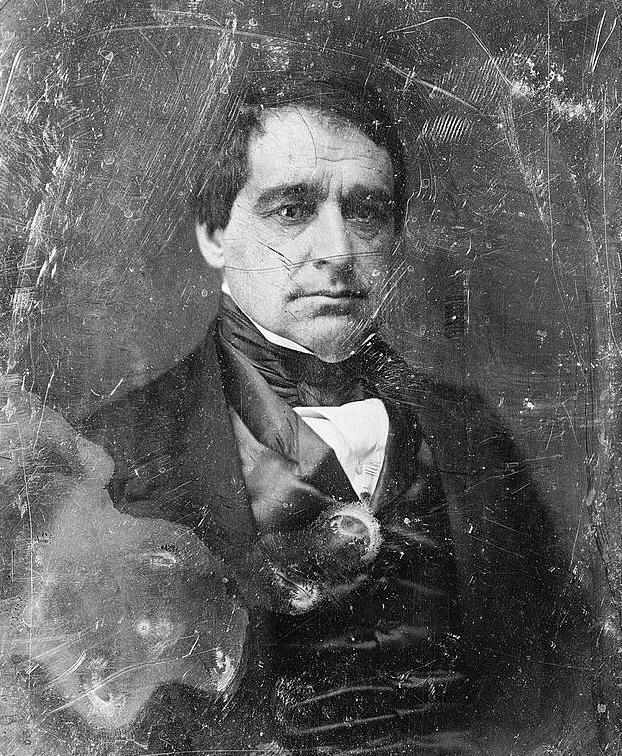|
US Presidential Election, 1864
The 1864 United States presidential election was the 20th quadrennial presidential election. It was held on Tuesday, November 8, 1864. Near the end of the American Civil War, incumbent President Abraham Lincoln of the National Union Party easily defeated the Democratic nominee, former General George B. McClellan, by a wide margin of 212–21 in the electoral college, with 55% of the popular vote. For the election, the Republican Party and some Democrats created the National Union Party, especially to attract War Democrats. Despite some intra-party opposition from Salmon Chase and the Radical Republicans, Lincoln won his party's nomination at the 1864 National Union National Convention. Rather than re-nominate Vice President Hannibal Hamlin, the convention selected Andrew Johnson of Tennessee, a War Democrat, as Lincoln's running mate. John C. Frémont started to run as the nominee of the new Radical Democracy Party, which criticized Lincoln for being too moderate on the iss ... [...More Info...] [...Related Items...] OR: [Wikipedia] [Google] [Baidu] |
Electoral College (United States)
The United States Electoral College is the group of presidential electors required by the Constitution to form every four years for the sole purpose of appointing the president and vice president. Each state and the District of Columbia appoints electors pursuant to the methods described by its legislature, equal in number to its congressional delegation (representatives and senators). Federal office holders, including senators and representatives, cannot be electors. Of the current 538 electors, an absolute majority of 270 or more ''electoral votes'' is required to elect the president and vice president. If no candidate achieves an absolute majority there, a contingent election is held by the United States House of Representatives to elect the president, and by the United States Senate to elect the vice president. The states and the District of Columbia hold a statewide or districtwide popular vote on Election Day in November to choose electors based upon how they have p ... [...More Info...] [...Related Items...] OR: [Wikipedia] [Google] [Baidu] |
War Democrat
War Democrats in American politics of the 1860s were members of the Democratic Party who supported the Union and rejected the policies of the Copperheads (or Peace Democrats). The War Democrats demanded a more aggressive policy toward the Confederacy and supported the policies of Republican President Abraham Lincoln when the American Civil War broke out a few months after his victory in the 1860 presidential election. Ohio In the critical state elections in Ohio in 1862, the Republicans and War Democrats formed a Unionist Party. This led to victory over the Democrats, led by Copperhead Clement Vallandigham. However, it caused trouble for Radical Republican Senator Benjamin Wade's reelection bid. War Democrats opposed Wade's radicalism, and Wade refused to make concessions to their point of view. He was narrowly reelected by the legislature. In 1863, the Ohio gubernatorial campaign drew national attention. Ohio Republicans and War Democrats were dissatisfied with the ... [...More Info...] [...Related Items...] OR: [Wikipedia] [Google] [Baidu] |
Confederate States Of America
The Confederate States of America (CSA), commonly referred to as the Confederate States or the Confederacy was an unrecognized breakaway republic in the Southern United States that existed from February 8, 1861, to May 9, 1865. The Confederacy comprised U.S. states that declared secession and warred against the United States during the American Civil War: South Carolina, Mississippi, Florida, Alabama, Georgia, Louisiana, Texas, Virginia, Arkansas, Tennessee, and North Carolina. Kentucky and Missouri also declared secession and had full representation in the Confederate Congress, though their territory was largely controlled by Union forces. The Confederacy was formed on February 8, 1861, by seven slave states: South Carolina, Mississippi, Florida, Alabama, Georgia, Louisiana, and Texas. All seven were in the Deep South region of the United States, whose economy was heavily dependent upon agriculture—particularly cotton—and a plantation system that relied upon enslave ... [...More Info...] [...Related Items...] OR: [Wikipedia] [Google] [Baidu] |
Union Army
During the American Civil War, the Union Army, also known as the Federal Army and the Northern Army, referring to the United States Army, was the land force that fought to preserve the Union of the collective states. It proved essential to the preservation of the United States as a working, viable republic. The Union Army was made up of the permanent regular army of the United States, but further fortified, augmented, and strengthened by the many temporary units of dedicated volunteers, as well as including those who were drafted in to service as conscripts. To this end, the Union Army fought and ultimately triumphed over the efforts of the Confederate States Army in the American Civil War. Over the course of the war, 2,128,948 men enlisted in the Union Army, including 178,895 colored troops; 25% of the white men who served were immigrants, and further 25% were first generation Americans.McPherson, pp.36–37. Of these soldiers, 596,670 were killed, wounded or went missing ... [...More Info...] [...Related Items...] OR: [Wikipedia] [Google] [Baidu] |
Wilderness Campaign
The Overland Campaign, also known as Grant's Overland Campaign and the Wilderness Campaign, was a series of battles fought in Virginia during May and June 1864, in the American Civil War. Lt. Gen. Ulysses S. Grant, general-in-chief of all Union armies, directed the actions of the Army of the Potomac, commanded by Maj. Gen. George G. Meade, and other forces against Confederate Gen. Robert E. Lee's Army of Northern Virginia. Although Grant suffered severe losses during the campaign, it was a strategic Union victory. It inflicted proportionately higher losses on Lee's army and maneuvered it into a siege at Richmond and Petersburg, Virginia, in just over eight weeks. Crossing the Rapidan River on May 4, 1864, Grant sought to defeat Lee's army by quickly placing his forces between Lee and Richmond and inviting an open battle. Lee surprised Grant by attacking the larger Union army in the Battle of the Wilderness (May 5–7), resulting in many casualties on both sides. Unlike hi ... [...More Info...] [...Related Items...] OR: [Wikipedia] [Google] [Baidu] |
Battle Of Atlanta
The Battle of Atlanta was a battle of the Atlanta Campaign fought during the American Civil War on July 22, 1864, just southeast of Atlanta, Georgia. Continuing their summer campaign to seize the important rail and supply hub of Atlanta, Union forces commanded by William Tecumseh Sherman overwhelmed and defeated Confederate forces defending the city under John Bell Hood. Union Maj. Gen. James B. McPherson was killed during the battle, the second-highest-ranking Union officer killed in action during the war. Despite the implication of finality in its name, the battle occurred midway through the campaign, and the city did not fall until September 2, 1864, after a Union siege and various attempts to seize railroads and supply lines leading to Atlanta. After taking the city, Sherman's troops headed south-southeastward toward Milledgeville, the state capital, and on to Savannah with the March to the Sea. The fall of Atlanta was especially noteworthy for its political ramifi ... [...More Info...] [...Related Items...] OR: [Wikipedia] [Google] [Baidu] |
1864 Democratic National Convention
The 1864 Democratic National Convention was held at The Amphitheatre in Chicago, Illinois. The Convention nominated Major General George B. McClellan from New Jersey for president, and Representative George H. Pendleton of Ohio for vice president. McClellan, age 37 at the time of the convention, and Pendleton, age 39, are the youngest major party presidential ticket ever nominated in the United States. Background The Democratic Party was bitterly split over the American Civil War between the War Democrats and the Peace Democrats. Also making matters complicated were the factions that existed among the Peace Democrats. For much of the war they had been dominated by the Copperheads, led by Clement Vallandigham. The Copperheads declared the war to be a failure and favored an immediate end to hostilities without securing Union victory, either via re-admitting all the Confederate states with slavery intact and legally protected, or by formally recognizing the Confederacy as a sov ... [...More Info...] [...Related Items...] OR: [Wikipedia] [Google] [Baidu] |
Confederated States Of America
The Confederate States of America (CSA), commonly referred to as the Confederate States or the Confederacy was an unrecognized breakaway republic in the Southern United States that existed from February 8, 1861, to May 9, 1865. The Confederacy comprised U.S. states that declared secession and warred against the United States during the American Civil War: South Carolina, Mississippi, Florida, Alabama, Georgia, Louisiana, Texas, Virginia, Arkansas, Tennessee, and North Carolina. Kentucky and Missouri also declared secession and had full representation in the Confederate Congress, though their territory was largely controlled by Union forces. The Confederacy was formed on February 8, 1861, by seven slave states: South Carolina, Mississippi, Florida, Alabama, Georgia, Louisiana, and Texas. All seven were in the Deep South region of the United States, whose economy was heavily dependent upon agriculture—particularly cotton—and a plantation system that relied upon enslave ... [...More Info...] [...Related Items...] OR: [Wikipedia] [Google] [Baidu] |
Copperhead (politics)
In the 1860s, the Copperheads, also known as Peace Democrats, were a faction of Democrats in the Union who opposed the American Civil War and wanted an immediate peace settlement with the Confederates. Republicans started calling anti-war Democrats "Copperheads", after the eastern copperhead (''Agkistrodon contortrix''), a species of venomous snake. Those Democrats accepted the label, reinterpreting the copper "head" as the likeness of Liberty, which they cut from Liberty Head large cent coins and proudly wore as badges. By contrast, Democratic supporters of the war were called War Democrats. Notable Copperheads included two Democratic Congressmen from Ohio: Clement L. Vallandigham and Alexander Long. Republican prosecutors accused some prominent Copperheads of treason in a series of trials in 1864. Copperheadism was a highly contentious grassroots movement. It had its strongest base in the area just north of the Ohio River as well as in some urban ethnic wards. Historia ... [...More Info...] [...Related Items...] OR: [Wikipedia] [Google] [Baidu] |
Radical Democracy Party (United States)
The Radical Democracy Party was an abolitionist and anti-Confederate political party in the United States. The party was formed to contest the 1864 presidential election and it was made up largely of disaffected Radical Republicans who felt that President Abraham Lincoln was too moderate on the issues of slavery and racial equality. John C. Frémont was nominated as the party's presidential candidate, with John Cochrane as his running mate. However, their campaign failed to gain momentum and not wanting to act as a spoiler against Lincoln, they withdrew from the race in September. History Cleveland convention The new party convened in Chapin's Hall in Cleveland, Ohio on at the end of May 1864, one week before the Republican convention. Different estimates were given on the number of attendees, ranging from 200 to 2,000. Often the number given depended on the political leanings of those making the estimate. As well as Radical Republicans, there were also a number of Democrats wh ... [...More Info...] [...Related Items...] OR: [Wikipedia] [Google] [Baidu] |
John C
John is a common English name and surname: * John (given name) * John (surname) John may also refer to: New Testament Works * Gospel of John, a title often shortened to John * First Epistle of John, often shortened to 1 John * Second Epistle of John, often shortened to 2 John * Third Epistle of John, often shortened to 3 John People * John the Baptist (died c. AD 30), regarded as a prophet and the forerunner of Jesus Christ * John the Apostle (lived c. AD 30), one of the twelve apostles of Jesus * John the Evangelist, assigned author of the Fourth Gospel, once identified with the Apostle * John of Patmos, also known as John the Divine or John the Revelator, the author of the Book of Revelation, once identified with the Apostle * John the Presbyter, a figure either identified with or distinguished from the Apostle, the Evangelist and John of Patmos Other people with the given name Religious figures * John, father of Andrew the Apostle and Saint Peter * Pope ... [...More Info...] [...Related Items...] OR: [Wikipedia] [Google] [Baidu] |
Hannibal Hamlin
Hannibal Hamlin (August 27, 1809 – July 4, 1891) was an American attorney and politician who served as the 15th vice president of the United States from 1861 to 1865, during President Abraham Lincoln's first term. He was the first Republican vice president. An attorney by background, Hamlin began his political career as a Democrat in the Maine House of Representatives before being elected twice to the United States House of Representatives, and then to the United States Senate. With his strong abolitionist views, he left the Democratic Party for the newly formed Republican Party in 1856. In the 1860 general election, Hamlin balanced the successful Republican ticket as a New Englander partnering the Northwesterner Lincoln. Although not a close friend of the president, he lent loyal support to his key projects such as the Emancipation Proclamation. In the 1864 election, Hamlin was replaced as vice-presidential nominee by Andrew Johnson, a Southern Democrat chosen for his ... [...More Info...] [...Related Items...] OR: [Wikipedia] [Google] [Baidu] |








